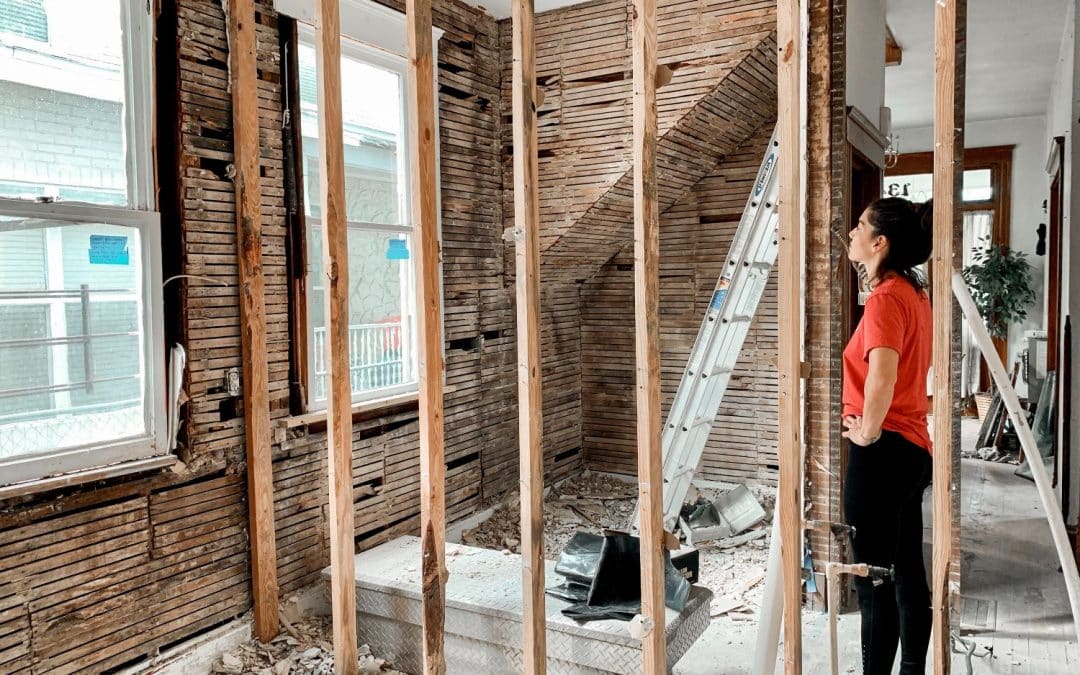Buying and selling real estate can be a lucrative endeavor if it is done properly. This type of property investment strategy, known as “flipping,” has potential for larger gains compared to simply holding a property in order to collect rental income. There are two ways you flip an investment property: buying a financially distressed property at under market rate or fixing a property which has physical and structural deficiencies.
Before you decide to attempt to flip real estate to make profit, you should understand the various advantages and disadvantages of doing so.
Advantage: Fast returns on investment
One of the main reasons people are interested in flipping properties as an investment strategy is that it allows you to potentially earn returns faster than many other investment techniques. It takes around six months if you are experienced and already know what you are doing. However, if this is your first time it may take longer to navigate through the process of buying and selling the property. Earning a return on a shorter time frame means that your investment capital can be freed up for the next investment endeavor quickly.
Advantage: Potentially safer investment
Many people prefer property investing compared to the stock market because the real estate market is generally more predictable than stocks. It is not uncommon to see the stock market experience a serious downturn within a single day. However, real estate markets tend to be steadier and generally appreciate with more consistency.
Also, you are more likely to avoid experiencing the occasional significant declines in the real estate market when flipping property as opposed to buying and holding a property. When flipping real estate, you are putting your investment capital at risk for a shorter period of time.
Additionally, there are risks in having to lease your property which you will avoid. These may include having a tenant that damages your property, having trouble finding suitable tenants and dealing with potential lawsuits from unhappy tenants.
Disadvantage: High costs
You may be surprised at the cost of flipping real estate. Of course, there is the cash required to make the purchase, however there are all types of fees and charges related to real estate transactions that you will have to pay.
Disadvantage: Tax liabilities
Another drawback of flipping real estate is that you may end up with increased tax charges as a result. Since there is a large increase in capital gains that you take in, this may end up pushing your capital gains for the year into a higher tax bracket. Often the process of flipping a property is too fast to take advantage of long-term capital gains tax rules that you would normally be able to use to mitigate your capital gains tax liability.
Is flipping real estate right for you?
Now that you have a good idea of the good and bad regarding flipping property as an investment strategy, you will have to decide if this tactic fits your needs. Whether or not this investing approach is right for you will depend on how much cash you have available, your overall financial circumstances and how much risk you want to take.
The information contained in this report does not purport to be a complete description of the securities, markets, or developments referred to in this material nor is it a recommendation. The information has been obtained from sources considered to be reliable, but we do not guarantee that the foregoing material is accurate or complete. Any opinions are those of the author and not necessarily those of RJFS or Raymond James. Expressions of opinion are as of this date and are subject to change without notice. There is no guarantee that these statements, opinions or forecasts provided herein will prove to be correct. Investing involves risk and you may incur a profit or loss regardless of strategy selected. Past performance does not guarantee future results. Future investment performance cannot be guaranteed, investment yields will fluctuate with market conditions.

